Productivity
5 strategies to enhance productivity & efficiency
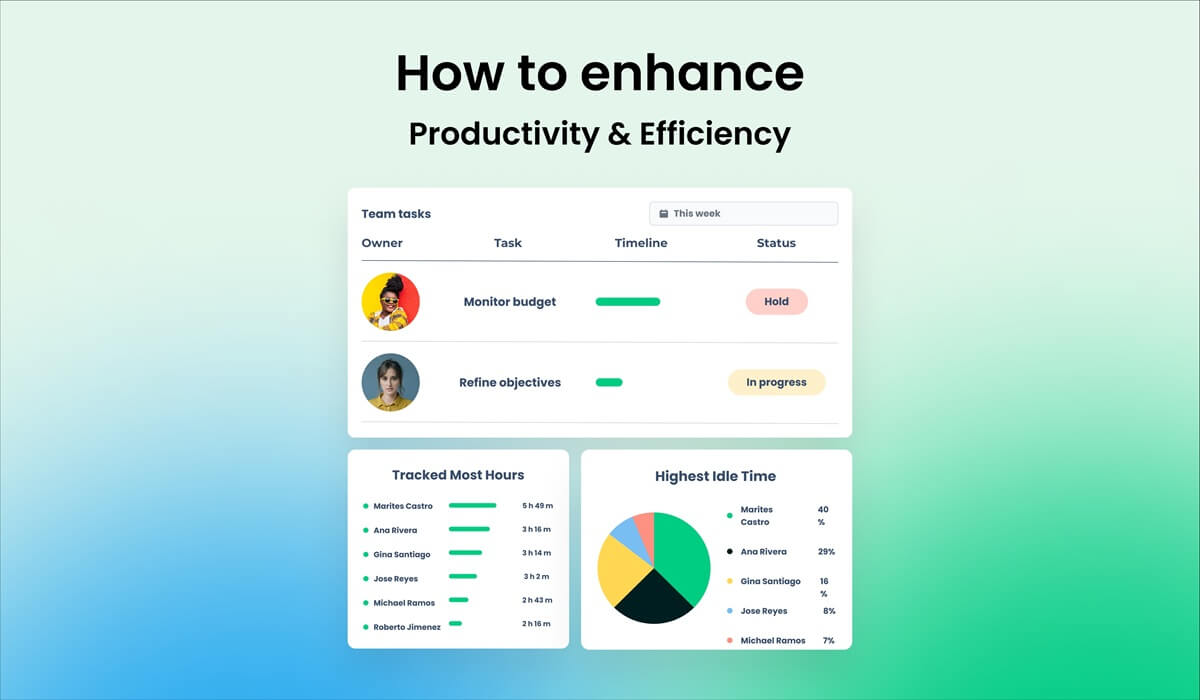
“Time is more valuable than money. You can get more money, but you cannot get more time.” - Nelson Mandela
We all know the feeling, right? That constant juggle between work, family, and squeezing in a sliver of "me-time." It's enough to make you wonder, "How do I possibly fit it all in and still have time for the people I care about?" The good news is, you're not alone in this struggle. We're all in this human boat together, trying to navigate the choppy waters of daily life.
But here's the thing: it's not just about having 24 hours. We all get the same amount of time, yet some of us feel crushed under a mountain of tasks, while others stare at empty calendars longing for purpose. So, what makes the difference? It's not the hours themselves, but how we choose to spend them. It's about taking charge and making conscious decisions about what truly matters, what fills our cups, and what helps us feel balanced and connected.
Get to know more useful tools to level up your time management at work.
Top 5 tips for mastering time management at work
To optimize your personal time management, you first need to figure out where the time is going. These helpful audits will help you out:
1. Identifying time wasters
Social media black holes: Admit it, we've all lost track of time scrolling through endless feeds. Be honest about your social media usage and set boundaries.
Multitasking maze: It's a myth, not magic! Multitasking often leads to decreased productivity and increased errors. Focus on one task at a time for maximum efficiency.
Meeting marathons: Not all meetings are created equal. Scrutinize your calendar and politely decline meetings that don't directly contribute to your goals.
2. Track your time & schedule
The first step to mastering time management is understanding where your time actually goes. For a week, track your activities in a journal or time-tracking tool. Be specific! Include everything from work tasks and meetings to breaks and personal errands. Once you have a clear picture of your time usage, you can start to identify areas for improvement
And remember, be realistic about how much you can accomplish in a day, and don't overload your schedule. Rework's built-in time management features go beyond simply tracking hours. They provide real-time insights into your team's workflow, helping you track time effectively and promote accountability.
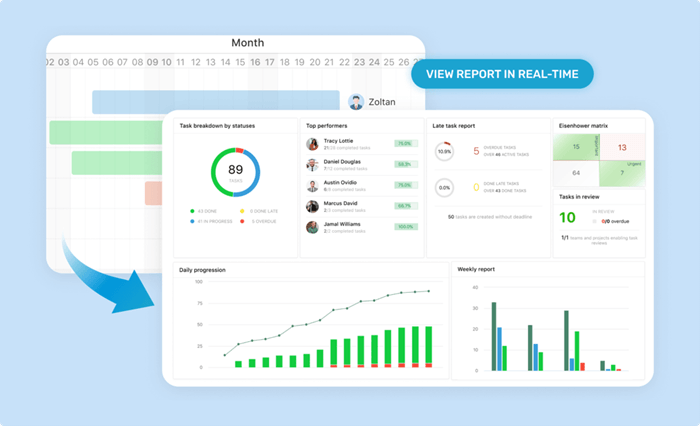
3. Break down and delegate tasks
When your to-do list resembles a skyscraper, it's time to break it down and delegate.
Picture yourself not as a lone builder, but as a project manager, strategically assigning tasks for maximum efficiency. Identify large, time-consuming tasks and break them into smaller, more manageable chunks. Offloading repetitive or administrative tasks frees up your time for high-value activities. Remember, delegation isn't dumping; provide clear instructions, expected outcomes, and deadlines.
By breaking down and delegating work, you not only lighten your load but also boost team morale and foster a collaborative environment, ultimately making everyone's time more valuable.
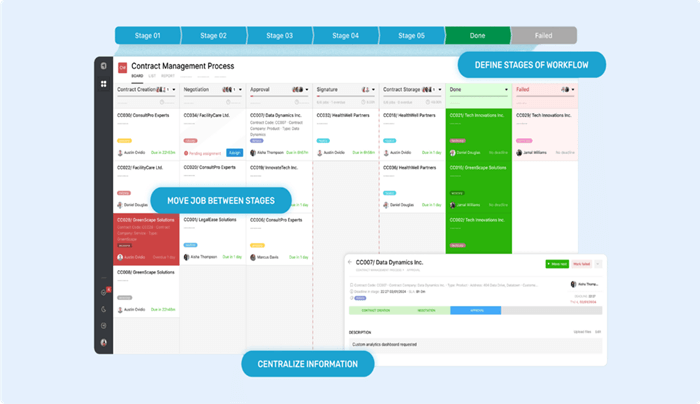
4. Prioritize work using the 80/20 rule
Implementing The 80/20 rule (known as the Pareto principle) is a vital step to level up your work results. This principle states that 20% of your efforts yield 80% of your results. By identifying those high-impact tasks, you can laser-focus your time and energy where they truly matter.
List down everything, estimate times, and then ruthlessly categorize: important and urgent tasks get top billing, while less crucial ones can be delegated, eliminated, or rescheduled. Remember, it's not about doing everything perfectly, but maximizing impact with your limited time.
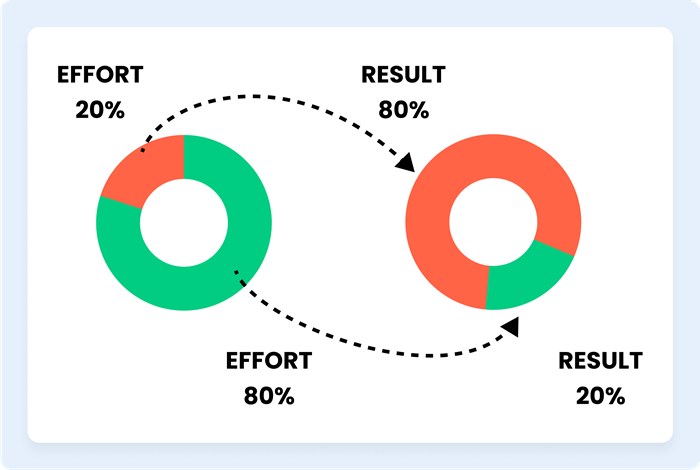
5. Don’t forget effective communication
Effective communication is crucial for time management at work. It helps ensure success with team members and stakeholders by promoting clarity and eliminating misunderstandings.
When you receive a project, make sure to schedule regular check-ins with colleagues and managers to stay aligned and on track. Remember, the better you communicate, the less time is wasted on confusion and unnecessary meetings. Invest in open and clear communication as a hidden key to improving time management and productivity. One way to achieve this is by sending instant updates on project activities and task deadlines.
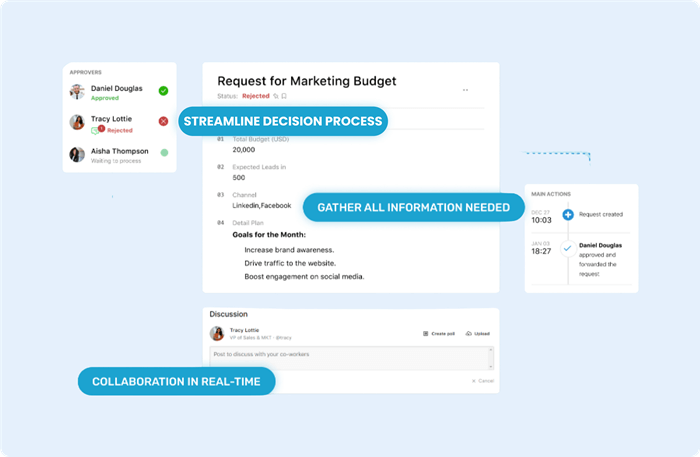
6. Focus on flexibility
The key to success lies in embracing flexibility as a core foundation of your time management strategy. This doesn't mean abandoning structure; it means acknowledging that unforeseen challenges, shifting priorities, and unexpected opportunities are inevitable.
Instead of viewing flexibility as a compromise, see it as a proactive approach to navigate the inevitable twists and turns. Embrace smaller, more manageable tasks that can be easily adjusted as needed. Schedule buffer periods to accommodate unexpected delays or last-minute changes. Foster open communication with your team to identify and address potential roadblocks before they become insurmountable. Remember, flexibility isn't about chaos; it's about adaptability.
Time Mastery: A Journey, Not a Destination
Time management is your superpower, not a destination. It's about taking charge, making conscious choices, and prioritizing what truly matters. Keep in mind these key takeaways:
Track your time: Understand where it goes to reclaim control.
Break down tasks: Divide big mountains into manageable hills.
Delegate: Share the load and empower others.
Prioritize ruthlessly: Focus on the 20% that gains 80% of results.
Communicate clearly: Eliminate confusion and wasted time.
Embrace flexibility: Adapt to the inevitable twists and turns.
This is your journey, not a competition. Be patient, experiment, and most importantly, celebrate your progress. Remember, you are the master of your time, not the other way around!

Tara Minh
Operation Enthusiast